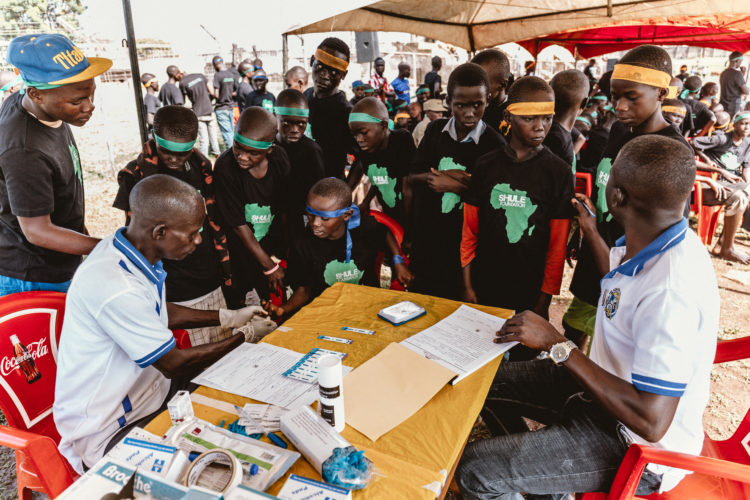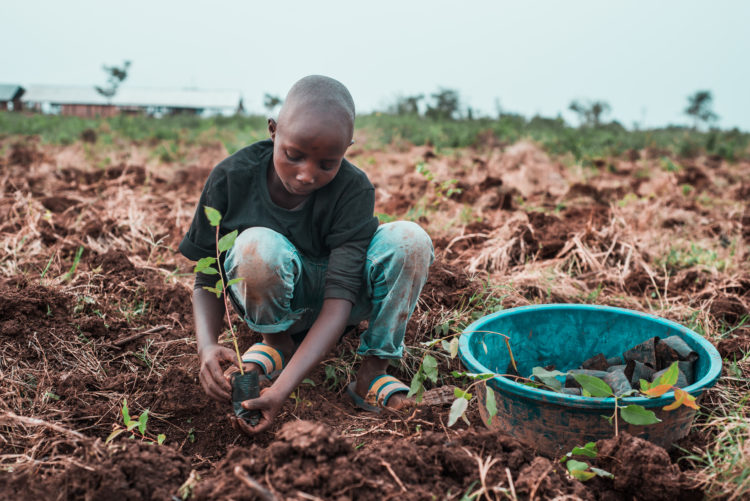This American woman’s journey tells a story that doesn’t fit the white savior complex many Africans have come to resent.
For most people, it’s hard to comprehend that certain boys living on the streets of Uganda and a white upper-middle-class Jewish girl from New Jersey could be kindred spirits. But that is what we are.
I grew up in Pompton Plains, a small town where we were one of only four Jewish families. So, like most of the kids from the streets of Uganda, I never felt like I belonged. A few years ago, I noticed a feeling of distance and invisibility that fosters negativity and self-loathing in the overwhelmingly large number of bright and capable boys living on the streets of Kampala. As an outsider, I relate to these outsiders and their view of the world. That view has inspired and motivated me to take up their cause and see that these outcast boys are given a chance to grow into autonomous young men.
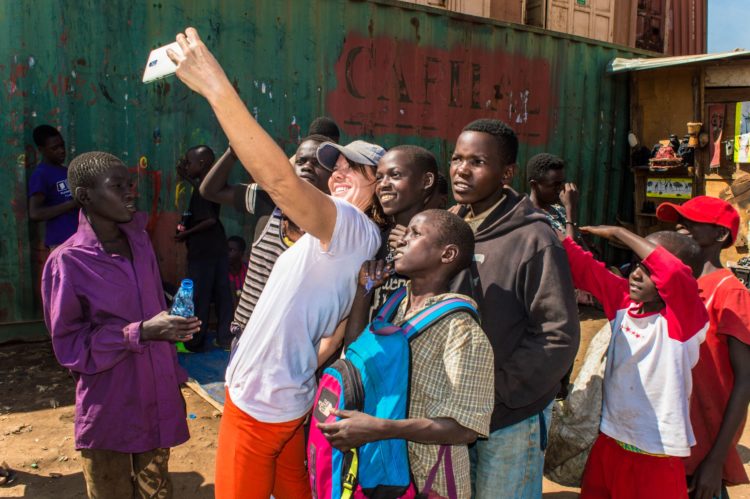
Shule Foundation’s original mission was to build schools in Uganda and level the playing field for those lost children who did not have access to quality education. But when I first started in 2015 my team and I were met with skepticism and resistance to funding, a response that propelled me in another direction.
I first encountered the street-connected boys of Kisenyi, one of Uganda’s largest and most notorious slums, on December 22, 2016, at a Shule-funded Christmas party. I would never have imagined how spending a day with boys from the streets would significantly impact my life, and shape Shule’s mission.
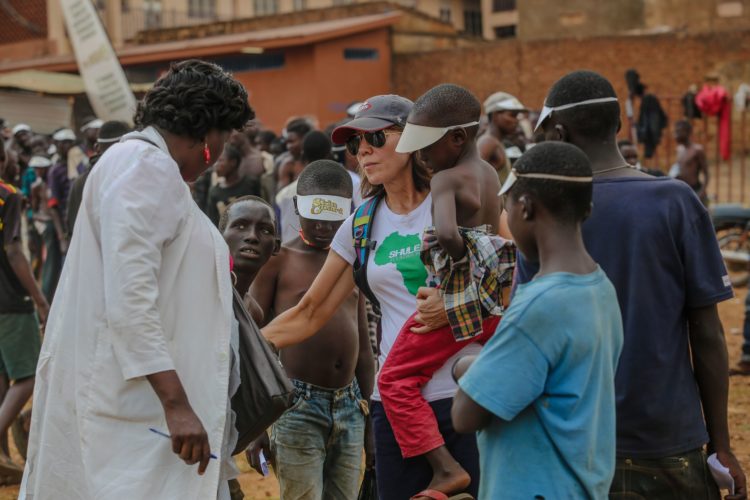
Yassin, 7, was the first boy to warm to me. He followed me like a shadow. Speaking excellent English, after telling me of his abusive father, Yassin asked me to buy him a present and return him home. I asked if this meant he would stay at home, and he quickly replied, “No, I just want to show my father that someone cares about me enough to buy me a gift.”
Yassin would be the first of many boys that Shule has freed from the streets, many “lifers” whom no one believed would ever emerge from the rabbit hole of their hellish existence. Boys like Ashraf, who left home at 6, briefly attended school at a remand home and returned to the streets for the remainder of his childhood. Malnourished and flea-ridden, he would spend his days like most kids on the street, inhaling Mafuta, an inexpensive, potent mix of jet fuel and industrial glue. A powerful hallucinogenic, the boys rely on it to suppress the constant ache of starvation and minimize the pain they endure from the regular beatings they receive from those who detest their existence. And simply put by Ashraf, we sniff to forget.
I would spend six months bonding with the boys in the street, earning their trust, and learning about their difficult lives through an outreach program we were able to launch. Shule went into the slum several times a week to pay for kids to shower and cut their hair. We supplied them with clothing, arranged for medical care, provided meals, and much more.
Then one day, I received a frantic call from Ashraf, begging to be taken off the streets. He had been arrested and taken to Kimpilingsa, a remand center for children. Ashraf, along with a few others, were able to escape and make it back to Kampala. Whatever took place there was enough to scare this “lifer” into finally wanting to leave street life behind.
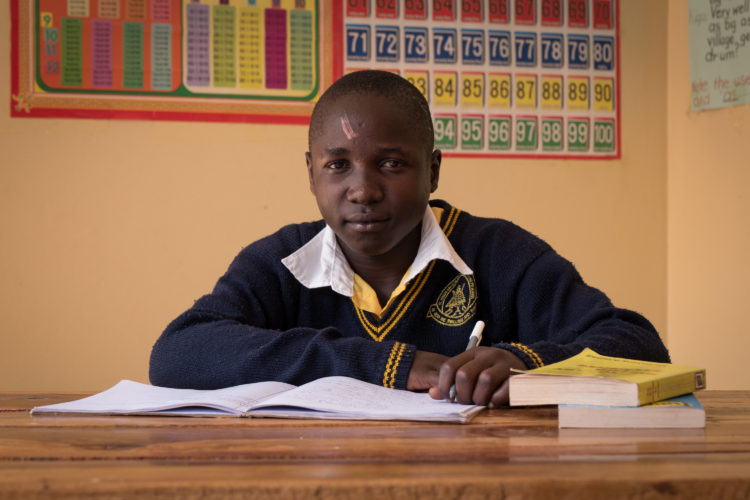
And without hesitation, I agreed. Within weeks, Shule moved 25 homeless boys into our newly established halfway home. It is there that the boys begin their journey back into society. At the home the kids receive group and one-on-one counseling. They benefit from homeschooling by local certified teachers. They spend time on household chores, attend skills training workshops, and participate in sports and other extra-curricular activities. Most importantly, during their time with us, we begin the reunification process with their families.
We have since shifted our outreach program to our drop-in-center and expanded it to include skills training workshops, counseling, dance and arts and crafts classes, chess and computer lessons. But you can still find the Shule staff walking the streets looking for new arrivals. Sadly there is no shortage of boys in-need of immediate care.
Years later, I am still blown away by the lives and resilience of street-connected boys. How can a child as young as 6-year-old muster up the courage to leave home, walk hundreds of kilometers to the capital city, and survive on their own? Thousands of them leaving home every year, and I continue to wonder how they do it.
When I look at the boys on the streets, I see children who feel like they don’t belong. It’s as if nobody sees or hears them. They feel misunderstood and they lack the self-esteem to rise above the haters and nay-sayers. I see children who take drugs to silence the voices in their heads. I see frustration and anger in boys who don’t know how to express themselves adequately. And when I look past all of that, I see boys of incredible potential and selfless kindness. In many, I see my younger self. I have met each and every boy who is part of our program and can proudly attest to the hope and confidence we instill in them to turn their lives around.
Jacqueline Wolfson currently resides in Uganda and is the founder of the Shule Foundation, a non-profit organization working exclusively with the boys living on the streets in Uganda. Shule empowers the kids with the skills and knowledge to become financially independent, socially aware true gentlemen.

